Is CAFFEINE Affecting Your Results?
If you’re reading this, then the chances are that you’re a busy person.
And, if you’re a busy person, I’m going to make a generalised statement and assume…
YOU’RE TIRED!
Many of us, myself included, will turn to caffeine as an antidote to that fatigue.
But what affect can caffeine have on your results and your health?
Let’s dig in.
What is caffeine?
This part is a bit nerdy… so stay with me.
In our brain we have a chemical called ‘adenosine’.
Whilst we are awake, we build up adenosine and slowly start to feel more tired and eventually feel the urge to sleep.
Caffeine binds with adenosine receptors in our brain and essentially block the adenosine… meaning we don’t feel tired.
Until eventually the caffeine wears off and we crash due to a build up of adenosine!
So really…
Caffeine only blocks our feeling of tiredness… It doesn’t get rid of the tiredness.
… That job is reserved for sleep!
Where do we get caffeine?
There are many sources of caffeine you can encounter throughout the day.
You might initially think of:
- Coffee.
- Energy Drinks.
- Performance supplements. (pre-workout or caffeine tablets)
But caffeine can also be found in:
many fizzy drinks
chocolate
tea’s
and even pain relief.
Because sometimes caffeine can come from less obvious places, we may be consuming more caffeine than we realise.
The recommended daily amount is suggested around 200 - 400mg.
If you drink from a coffee shop, that’s up to 3/4 cups of coffee a day.*
*Caffeine content in coffee does vary
So when you include all the possible sources of caffeine, it could be pretty easy to find ourselves going over that amount. Or perhaps you just like to drink a lot of coffee!
My first action step, is to:
Get clear on your caffeine intake across a day!
Benefits of caffeine
Caffeine has lots of potential health benefits.
There are studies that correlate it as improving our resistance to certain diseases, such as alzheimers, Parkinson’s, some cancers and even kidney stones.
But, 2 of the most notable benefits for me are
1. How it can increase our performance in a workout.
We all know that training is a really important part of improving how we look, move and feel.
Studies have shown Caffeine can help us to get the most from a training session by increasing, Muscular strength, endurance and power as well as other performance attributes.
My preferred way of consuming caffeine pre-workout is a short coffee like an esperesso, or a cortado, about an hour before I start training.
There are many caffeine-based products or ‘pre-workouts’ on the market too… Personally I’ve never took one of these. But my advice is to look carefully at what’s been added to these products and determine whether or not you’d like to take one.
2. How it can directly increase our calorie burn.
Caffeine raises our core body temperature and accelerates varies processes in the body.
This can directly increase the amount of calories we burn.
As we know, we need to create a deficit of calories to lose body fat and improve various health markers.
Increasing calorie burn is one way to create that deficit.
But a heads up for people who are trying to lose body fat and like to consume coffee for their caffeine-hit…
Keep an eye on your total calorie intake, try to stick to low calorie drinks like an Americano or espresso.
The calories can start to add up if you’re not careful.
Risks of Caffeine
Although there are benefits to caffeine.
Too much of a good thing is bad for you.
Over-consumption of caffeine can increase stress levels in the body, and it can also increase feelings of anxiety.
If you are particularly sensitive to the effects of caffeine, these symptoms can be more severe.
If you go down the internet rabbit hole…. There are all kinds risk statements about the effects of caffeine.
Such as how it can ‘wear out your adrenal glands’.
But the research isn’t perfect, so I don’t want to make any definitive statements about potential health risks…
But one area that is of particular concern for me as a health and fitness coach is how caffeine can negatively effect sleep.
Sleep, as we know, is one of the most (if not the most) important factor in how we look and how we feel.
(I’ve discussed the importance of sleep in episode 3 and how to get high quality sleep in episode 18)
So I’m not going to go into detail on sleep now.
But it’s essential to our results.
Caffeine can negatively impact our ability to fall asleep and to achieve high quality sleep.
So another action point is to not have any caffeine within 6 hours of going to bed.
Caffeine can actually last in our system for 10-12 hours, so really the further away your caffeine intake is from going to sleep. The better.
In Summary
Caffeine is a great tool to improve focus, productivity and alertness.
It can be very useful to improve performance in workouts, and also directly increase our calorie burn.
Although caffeine can have various potential risks…
The one that stands out to me the most is how it can impact sleep.
Remember that caffeine only blocks our tiredness…
It isn’t a cure for it!
As busy people, we need to be careful that we’re not covering over a need for more sleep with a mask of caffeine.
If we’re not careful we can end up in a vicious cycle of…
Being tired —-> Over caffeinating —-> negatively affecting our sleep ——> being tired again!
Be conscious of your caffeine intake and use it as a tool to get better results!
… Don’t let it become an obstacle to your goals and your overall health and wellbeing.
Yours in coaching,
Harry
